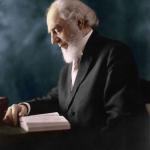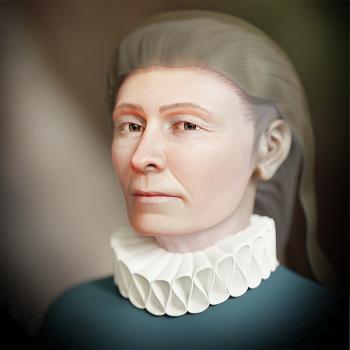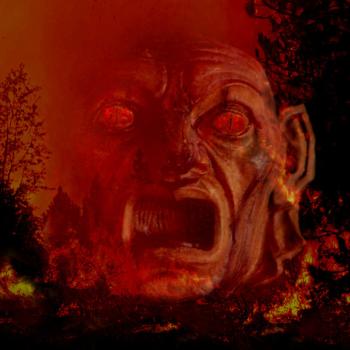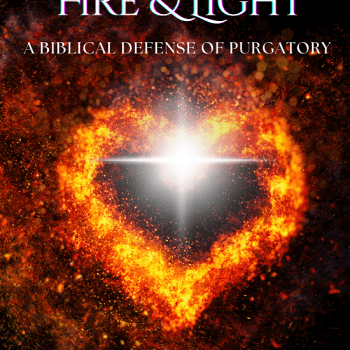
The false doctrine of soul sleep relies on the distortion of a few passages of supposed “proof.”
A member on the CHNI [Coming Home Network] discussion forums, asked some good, probing questions. His words will be in blue.
Man, you are a question machine! But that’s good: inquisitive minds will find the truth if they sincerely seek it and (most importantly) are willing to submit to it when they find it.
I ran into this objection on another bulletin board:
In Matthew 27:52 it describes those who arose from their graves when Jesus rose as “those who slept”. Paul uses the same description in 1 Corinthians 15:20. Paul in 1 Thessalonians 4 compares the living with those who were put to sleep, i.e. the dead.
This is an instance of what is called “phenomenological” language: the language of outward description or appearance rather than complete metaphysical analysis. So to us the dead appear to be asleep.
Paul tells the Thessalonians that when the Lord descends from heaven, those sleeping (believers) will arise and along with the living (believers) shall meet the Lord in the air (between heaven and earth). The believers who were dead were clearly not in heaven or hell or all of 1 Th 4: 13-18 makes no sense whatsoever.”
Of course, the question arises: where does this person think they were? Catholics have no problem interpreting this. There is, as David mentioned, the Limbo of the Fathers (or Hebrew: Sheol / Greek: Hades) or purgatory. These can all be amply defended from Holy Scripture.
The question I have is how does this resolve with for instance the ideas in revelation of the saints and martyrs praying, or of Jesus seeing Moses and Elijah on Mt. Tabor. Or the passage that says to be absent from the body is to be present with the Lord?
Consciousness after death is clearly taught in Scripture. For example: the soul is described as a separate entity from the body:
MATTHEW 10:28 And fear not them which kill the body, but are not able to kill the soul: but rather fear him which is able to destroy both soul and body in hell.
REVELATION 6:9-10 And when he had opened the fifth seal, I saw under the altar the souls of them that were slain for the word of God, and for the testimony which they held: And they cried with a loud voice, saying, How long, O Lord, holy and true, dost thou not judge and avenge our blood on them that dwell on the earth?
1 KINGS 17:21-22 Then he stretched himself upon the child three times, and cried to the Lord, “O Lord my God, let this child’s soul come into him again.” And the Lord hearkened to the voice of Elijah; and the soul of the child came into him again, and he revived. (cf. Lk 8:53-55)
* * * * *
JOHN 11:26 And whosoever liveth and believeth in me shall never die. Believest thou this?
Jesus clearly sets forth the notion that the faithful Christian will always have conscious, unending existence with God. He cannot possibly be referring to physical death, since all men die in that sense.
PSALM 116:15 Precious in the sight of the LORD is the death of his saints.
The consciousness of the dead is assumed or else the verse becomes ludicrous.
1 Samuel 28:11-16 tells us that Samuel returns from the dead and pronounces Saul’s death sentence.
Jehovah’s Witnesses, Seventh-Day Adventists and other sects and cults that teach what is known as annihilationism or soul-sleep (no consciousness after death and no hell, with the sinner being annihilated out of existence altogether) typically rely on the distortion of a few passages in order to “prove” their error:
Ecclesiastes 9:5 . . . the dead know not any thing, neither have they any more a reward . . .
If the first clause is understood in an absolute sense, then so must the second clause be interpreted. Thus, the dead would have no “reward” as well as no consciousness. This would deny the resurrection and the rewarding of the righteous (see Rev 20:11-13; 21:6-7; 22:12, 14). Obviously, then, a qualification of some sort has to be placed on Ecclesiastes 9:5. In the very next verse, we learn that:
. . . neither have they any more a portion for ever in any thing that is done under the sun.
In other words, in relation to this world, the dead know nothing, but they are in a different realm, where they do know something. As further examples of this limited sense of “not knowing anything” in Scripture, see 1 Samuel 20:39 and 2 Samuel 15:11, where an interpretation of unconsciousness would be ridiculous.
Ezekiel 18:4 (also 18:20) . . . the soul that sinneth, it shall die.
Here, the spiritual use of “death” in the Bible is overlooked. For instance, 1 Timothy 5:6 reads:
But she that liveth in pleasure is dead while she liveth. (cf. Eph 2:1 and Lk 15:24)
That Ezekiel 18:4, 20 refers to spiritual death (i.e., separation from God, not annihilation) is obvious from context, since 18:21 declares:
But if the wicked will turn from all his sins that he hath committed, and keep all my statutes, and do that which is lawful and right, he shall surely live, he shall not die.
Since all men die physically, this must be talking about the spiritual, or “second” death. So much for this “proof” . . .
Psalm 146:4 His breath goeth forth, he returneth to his earth; in that very day his thoughts perish.
This verse’s meaning is similar to that of Ecclesiastes 9:5. Here, “thoughts” refer to “unaccomplished purposes” of a person on earth. Death puts an end to those purposes, as anyone would agree. In this sense, one’s thoughts “perish” at death. Another similar use occurs at Isaiah 55:7:
Let the wicked forsake his way, and the unrighteousness man his thoughts . . .
This doesn’t mean that unrighteous men must cease all thinking and become unconscious and nonexistent. Nor does Psalm 146:4. Much of this sort of inadequate and erroneous exegesis results from a profound lack of understanding of the many literary forms and devices used in Scripture, as seen in these three examples. Much of the Old Testament is poetry of one sort or another. One cannot interpret poetry in a wooden, literal way.
I think we believe that only a few people who were assumed into heaven may have their resurrection bodies. But the passage in Thessalonians does not seem to distinguish between their body or soul being asleep.
This is simply phenomenological language, explained above. Jesus even seems to play around a little with this sort of language, when He described the daughter of Jairus, who had died: “Do not weep, for she is not dead, but sleeping” (Lk 8:52). Jesus then “prayed” both to the dead (by addressing a dead person) and for the dead (by commanding a dead person to return to earthly life), because He was talking to a dead child, and saying, “Child arise” (Lk 8:54). The next verse states “and her spirit returned,” thus proving that it was separate from her body.
So what can I make of all this if anything? How do we answer someone who thinks that all the dead are still awaiting resurrection and to go to heaven therefore we can not pray to them?
I think I have shown various strong biblical arguments along those lines.
It seems they have at least a few Bible passages that seem to point to the idea that the dead are not in heaven but merely waiting in some other state.
Luke 16 about Lazarus and the rich man clearly teaches a third state.
***
(originally 11-28-07)
Photo credit: Image by “geralt” (5-1-15) [Pixabay / CC0 Creative Commons license]
***













